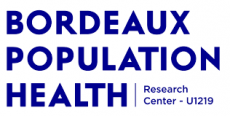Social determinants of inadequate prenatal care utilization in sheltered homeless mothers in the Greater Paris area in France
Résumé
BACKGROUND: Sheltered homeless families suffer from deleterious living conditions such as housing instability (i.e., moving from one shelter to another) that could be an additional barrier to healthcare utilization. Few studies have specifically examined perinatal health in homeless mothers and their utilization of prenatal healthcare. This study aimed to identify social determinants such as living conditions (i.e., housing instability) associated with inadequate prenatal care utilization (PCU) in sheltered homeless mothers in the Greater Paris area in France. METHODS: The homeless children and families cross-sectional survey [ENFAMS: (Enfants et familles sans logement)] was performed on a random representative sample of homeless families living in shelters in the greater Paris area in 2013. Following French guidelines, PCU was deemed inadequate if one or more of the following criteria was met: attending fewer than 50% of recommended prenatal visits, PCU initiation after the first trimester of pregnancy, and fewer than three ultrasounds during the entire pregnancy. Families were interviewed in 17 languages by trained peer interviewers in face-to-face interviews. Structural equation modeling was used to identify factors associated with inadequate PCU and to estimate correlations between them. RESULTS: This study analyzed data on 121 homeless sheltered mothers who had at least one child less than one year old. They were socially disadvantaged and most were born outside France. One in five (19.3%) had inadequate PCU. Associated factors were socio-demographic characteristics (young age, primiparous), health status (dissatisfaction with self-perceived general health), and living conditions (housing instability in the second and third trimesters). CONCLUSION: It is essential to reduce housing instability to help sheltered mothers to benefit from social, territorial and medical support and healthcare utilization. Housing stability for pregnant sheltered homeless mothers should be a priority to ensure better PCU and guarantee the newborn's health as much as possible.
Origine : Fichiers éditeurs autorisés sur une archive ouverte



